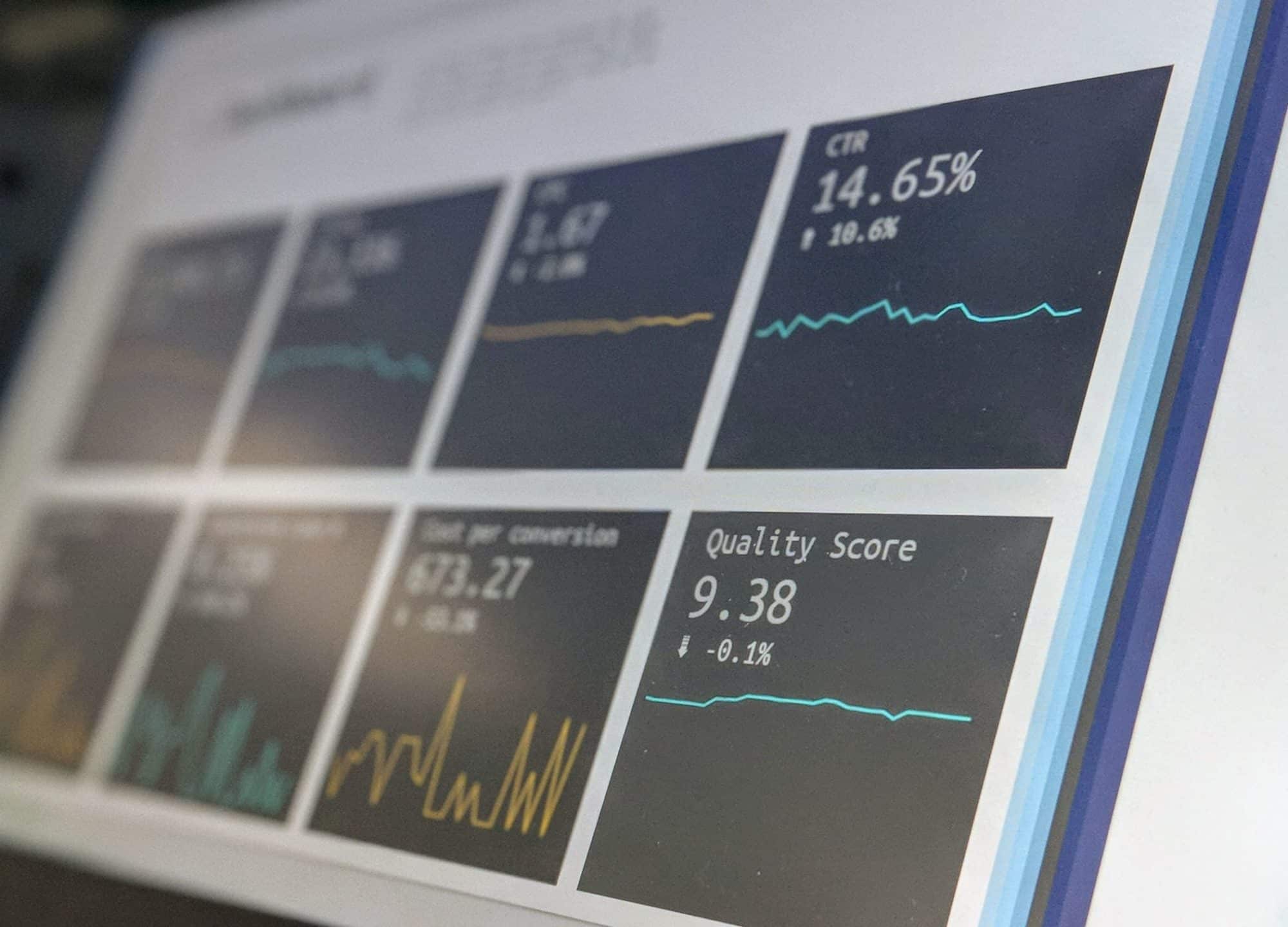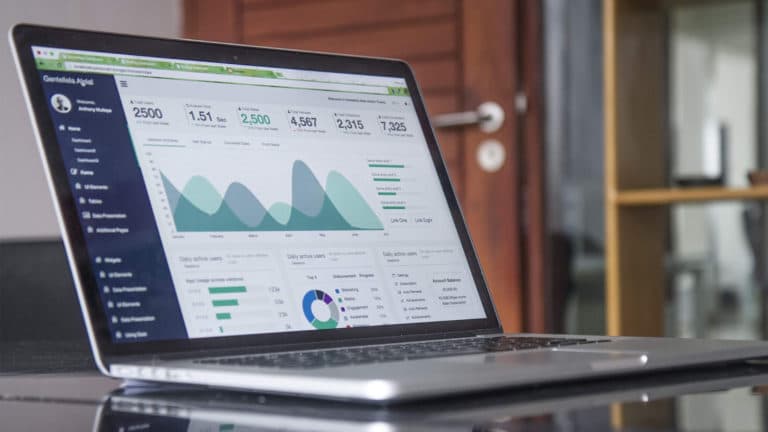Looking for the most up-to-date B2B SEO statistics?
We’ve compiled a list of some of the most eye-opening and telling B2B SEO statistics to help you have a clear picture of the state of the industry.
And if you’re a marketing manager or SEO who needs to get buy-in from leadership, some of the stats in this article can help you do just that.
So, let’s dive into our ultimate list of B2B SEO statistics. We’re sure you’ll find them to be useful, and others might even surprise you. Here’s a high level overview of each category:
- Our favorite B2B SEO statistics
- Expert Statistics About the SEO Industry
- Website User Behavior
- Device Usage
- Technical SEO
- B2B Buyers
- Link Building Statistics
- Content Marketing
- From Google’s Mouth
- Ranking Factors
- SERPs
- SEO Tool usage
Feel free to click and go directly to the category you find most interesting, or continue reading for the full list!
Our Favorite B2B SEO Stats
To kick off this list of B2B SEO statistics, we’d like to show you some of our favorite ones. One reason we love the stats below is that they give an excellent overview of the B2B SEO landscape.
So, let’s get started.
- 68% of all online experiences begin with a search engine.
- Over 53.3% of website traffic comes from organic search.
- SEO drives over 1000% more traffic than other channels like organic social media.
- 60% of marketers cite inbound marketing as their top source of high-quality leads.
- Google is the dominant search engine, driving 92.9% of all global traffic. Next are Bing (3.03%) and Yahoo! (1.22%)
- B2B buyers consume 3-7 pieces of content on average before speaking to a salesperson.
- 40% of marketers say content development is their most pressing SEO issue.
- The first result on Google’s search engine results page (SERP) gets approximately 27.6% of all clicks.
- 61% of marketers say their primary SEO goal is lead generation.
- Over 6.5 billion searches are made on Google each day.
- 84% of B2B marketers say content creation is the top content marketing activity they outsource.
- 32% of respondents said they don’t have a person dedicated to running their content marketing campaigns.
- 70% of marketers say they focus on all three aspects of SEO (on-page SEO, off-page SEO, and technical SEO) when conducting their SEO audits.
- When asked which channel provides better quality leads, 81.2% of respondents chose SEO over PPC.
- Over 92% of keywords get fewer than 10 monthly searches. Don’t discount zero-search volume keywords in your startegy.
As you can see from these statistics, SEO should play a crucial role in every B2B brand’s marketing strategy. Investing in a B2B SEO strategy will definitely pay off.
And those who are going to enjoy big wins are those who can create SEO-friendly content that meets Google’s E-E-A-T standards. That’s why we encourage brands to master their SaaS technical writing, or outsource to an agency that understands SaaS SEO.
Expert Statistics About the SEO Industry
Need a glimpse of the state of the SEO industry?
Here are some statistics to help you get a lay of the land:
- Having limited in-house SEO skills is the most challenging obstacle to successful SEO, according to 57% of Enterprise brands.
- 57% of B2B marketers say SEO has become more effective in the past year.
- Over 54% of enterprise brands outsource their SEO campaigns.
- The global SEO services market is projected to grow at a compound annual growth rate of 20% to reach $103.24 billion in 2025.
- 43% of B2B SEOs cite limited budget as the biggest hindrance to achieving their objectives.
- 81% of B2B companies expect to spend at least $7,500 per month on SEO.
- 70% of marketers believe SEO delivers much better results than PPC.
- It takes 3-6 months for SEO to start delivering results. The actual time frame depends on many factors.
- 70% 0f SEOs cite blogs as their top source for SEO-related information.
- SEO generates more sales on average than PPC for 70% of brands.
- 80% of B2B executives say projected ROI from an SEO campaign dictates what they’re willing to pay for SEO rather.
Website User Behavior Statistics
Your website plays a huge role in the success of your SEO and digital marketing campaigns. That’s why user experience (UX) should play a huge role in your B2B SEO strategy.
Need stats to back that up?
- The first 5 seconds of page-load time have the highest impact on your conversion rates.
- Conversion rates drop 4.42%, on average, with each additional second of load time.
- 70% of consumers say page speed impacts their willingness to buy from an online retailer.
- 38% of people say they wont revisit a website if its content or layout are unattractive.
- 90% of buyers say they’re more likely to be repeat buyers if a B2B website has a superior mobile experience.
- This is compared to about 50% who say they’d be repeat buyers after having a poor experience.
Device Usage Statistics
Understanding which devices your customers use when searching for your product is a crucial part of SEO. it helps you optimize your digital assets for the most used platforms.
So, let’s briefly look at some stats about device usage.
- More searches are conducted on mobile than on desktop.
- 52.2% of all website traffic comes from mobile phones.
- Mobile interactions drive over 40% of revenue for B2B brands.
- Mobile results get 85.8% more impressions than desktop results.
- Search results in position #1 on mobile get 27.7% of the clicks, while those ranking in position #1 on desktop get 19.3% of the clicks.
- 47% of keywords in positions 1-20 rank differently on mobile vs desktop browsers.
- 50% of all B2B search queries are performed on smartphones.
- Mobile can accelerate the time to purchase by about 20%.
Technical SEO Statistics
Technical SEO is an essential element of implementing successful campaigns. Despite being the least sexy part of SEO, and most underrated, neglecting it could cost you precious rankings.
Here are a few technical SEO statistics to help prove the importance of this aspect of SEO:
- 55.6% of SEOs believe too little importance is placed on technical SEO.
- 68.8% of survey respondents say including your primary keyword in your URL is crucial to SEO.
- Technical SEO provides brands an average ROI of 117%.
- For every additional 1 second of load time, website conversion rates drop by an average of 4.42%.
- 59% of SEOs say technical onsite optimization was their most effective SEO strategy.
- 75% of a B2B website’s credibility comes from its design.
- Low loading sites cost brands over $2.6 billion in revenue each year.
B2B Buyer Behavior Statistics
Understanding your customers is essential to crafting marketing strategies that work. To help you do that, here are some interesting stats about B2B buyers:
- 95% of B2B buyers go with a vendor who provides them with enough content to help navigate through each stage of the buyer journey.
- Millenials make up over 60% of B2B buyers while Gen-Z comes close behind at 32%.
- 89% of B2B buyers use the internet to gather information about potential purchases.
- 87% of B2B buyers report that online content has a “major or moderate impact on vendor selection”.
- The average B2B buyer typically spends only 17% of their time interacting with potential suppliers when considering a purchase. The rest of the time is spent researching.
- 52% of B2B buyers say they’re more likely to buy from a vendor after reading their content.
- 80% of B2B buyers say they use mobile at work.
- Typical B2B buyers consume 3-7 pieces of content before reaching out to a salesperson.
- 76% of B2B buyers expect more personalization based on their specific needs.
- By 2025, 80% of B2B sales interactions will occur via digital channels, making SEO a critical part of marketing.
- 51% of buyers say vendor websites are their top source of information when looking for a product.
- 33% of B2B buyers now spend more time researching products than they did before the pandemic.
Link Building Statistics
You’ve probably heard that link building is a critical element of any B2B SEO strategy.
But, just how important is link building?
Let’s look at some interesting link building statistics to help answer that question:
- Over 90% of B2B content has no backlinks.
- 41% of digital marketers cite link building as the hardest part of SEO.
- 40.7% of marketers say content marketing is their top strategy for passive link building.
- 43% of marketers report spending upwards of $10,000 annually on link building, while 22% spend $1,000 – $2,500.
- 41% of marketers say they expect the cost of link building to increase in the future.
- 67.5% of marketers believe backlinks have a significant impact on search engine rankings.
- Long-form content gets 77.2% more backlinks than short-form content, making it the best option for organic link acquisition.
- 48% of marketers say “nofollow” links are part of their link building strategy.
- SEO professionals say external link building is the third most important SEO factor.
- 53% of digital marketers consider guest posting as the most effective link building strategy.
- 56.2% of survey respondents say they believe link quality and quantity greatly impact rankings.
- Over 63% of digital marketers say they prefer to outsource their link building efforts.
- Having 2-3 internal links is also important to SEO according to 51% of marketers.
Content Marketing Statistics
Every brand should have a B2B content marketing strategy. For it to be effective, it must be data-driven. Here are some content marketing stats to help you design your own.
- Only 4.7% of B2B content teams say bottom-of-funnel (BoFu) content is the type of content they create the most.
- 69% of successful content marketers say they have a documented content strategy.
- According to 54% of B2B marketers, quality content creation is the most impactful SEO tactic.
- Brands that blog produce, on average, 67% more leads than those that don’t blog
- Brands that prioritize blogging get 13X more ROI for their marketing efforts than those that don’t.
- 70% of people say they prefer to learn about a brand through articles rather than advertisements.
- 75% of brands outsource their content marketing efforts.
- 82% of people feel positive about a brand after reading the brand’s content.
- Over 50% of marketers cite keyword rankings and organic traffic as the top ways they measure an SEO campaign’s success.
- 59% of B2B marketers consider blogs as their most valuable content distribution channel.
- 74% of top content marketing performers focus on crafting content based on the stages of the customer journey.
- 65% of content marketers say they have established key performance indicators (KPIs) to measure success.
- 66% of B2B companies say they plan on increasing their content marketing budgets within the next 12 months.
- Less than a 33% of B2B brands include their sales teams in messaging and content creation.
Statistics Straight From Google’s Mouth
Being the biggest search engine around, getting insight from Google on the state of B2B SEO is imperative to helping you design impactful campaigns. Let’s briefly look at some of the top SEO statistics from Google.
- Buyers make, on average, 12 different searches online before engaging with a particular B2B website.
- 70% of B2B buyers report watching videos throughout their sales journey.
- The average mobile web page takes 15.3 seconds to load.
- 39% of purchases are influenced by a relevant search.
- 71% of B2B research starts with a generic query before transitioning to branded queries.
- 51% of smartphone users say they’ve discovered a new product or brand when conducting a search on their smartphones.
- High-quality content and backlinks are among the top 2 ranking factors Google considers.
- 90% of B2B buyers who are online use search specifically to research business purchases.
Ranking Factor Statistics
Ranking high on SERPs is a top priority for most digital marketers and SEOs. That’s why demystifying the factors that lead to better rankings is important. Here are some stats to help you do just that:
- Links and content are the top 2 ranking factors.
- Google’s algorithm has over 200 factors it uses to rank websites.
- The average first page Google result is about 1400 words long (long-form content performs better).
- The first result on Google’s SERPs has an average of 3.8x more backlinks than the rest of the results on the same page (positions 2-10).
- Page speed has been a major ranking factor since 2010.
- The top-ranking result on Google has 3.2x more referring domains than the other results on the first page.
- Most H1 tags have 60% to 80% of the keyword they’re trying to rank for.
- The average time on site for a first page result is 2.5 minutes. The longer the time on site, the better the rankings.
- 36% of SEO experts believe the headline (title tag) is the most important SEO element.
SERPs (Search Engine Results Pages) Statistics
To craft an effective SEO campaign, you must know common trends on SERPs. Here area few statistics to give you a lay of the land:
- 28.5% of users click the first search result on Google. All second page results have a CTR less than 1%.
- Research shows the average bounce rate for top-ranking pages to be about 50%.
- Only 10% of content gets traffic from organic search.
- The average organic click-through rate (CTR) for the first Google desktop search result is about 32%.
- Only 45.25% of all browser-based searches on Google get in organic clicks.
- 89% of marketers believe rich snippets help improve CTR.
- 50% of users are more likely to click a search result if the brand appears multiple times on SERPs.
- The first 5 search results on Google account for over 67% of all clicks.
- Position #1 results in organic search contain an average of 1,890 words.
- 65% of top ranking search results are HTTPS, showing the importance of security in SEO.
- 75% of users never go beyond the first page of SERPs.
- Only 12.29% of search queries have featured snippets on SERPs.
- 40.7% of voice search answers are pulled from a featured snippet.
SEO Tool Usage Statistics
SEO tools play a huge role in every aspect of building a B2B SEO strategy. Below are some insights into SEO tool usage at all stages of running an SEO campaign:
- 80% of SEOs use Google’s SEO tools to gather data.
- Google Analytics is the most used SEO tool and is used by over 72% of companies surveyed by Hubspot.
- Organic traffic is the most tracked SEO metric.
- 46% of B2B marketers use content creation/collaboration/workflow tools.
- Ahrefs is the most popular link building tool with 82% of digital marketers saying it’s their tool of choice.
- Over 80% of companies use paid SEO tools. Only 17% rely on free SEO tools.
- 86% of B2B marketers say analytics tools are their go-to technology that help with content marketing.
- 54% say rankings by keyword are the most important metric to track performance.
- LinkedIn is the top organic content distribution platform for 95% of marketers.
- Almost 60% of marketers use Google Search Console (GSC) to audit technical SEO issues.
- Up to 72% of brands say content marketing is effective in helping them achieve their lead generation goals.
- 71% of marketers say content marketing has become more important in the last year.
- 61% of marketers say creating content that appeals to every stage of their buyers journey is the biggest content marketing challenge.
- 28% of B2B brands say they have the right technology to manage content across the organization. 31% say they have the technology but aren’t using it to its full potential.
As you can see, running a successful B2B SEO campaign requires a robust toolset. For many startups and medium businesses, the cost of a complete suite of SEO tools can be crippling. This is another valid reason outsourcing to an agency. Want to see who the best growth marketing agencies in the US are?
[NEW] AI and Automation Statistics
131. 43% of marketers say automation and AI have been instrumental in their organization’s growth.
132. The market for AI tools in marketing is projected to reach $35.99 billion in 2024 and a whopping $107.54 billion by 2028.
133. 64% of respondents said the use of AI in their marketing gave them an advantage over their competitors.
134. Only 15% of marketers plan to implement AI usage.
135. 34% of marketers cite marketing automation tools to be high on their list of top technologies they use.
B2B SEO Statistics: The Key to Building Data-driven Campaigns
With the competition becoming stiffer in organic search, you need to leverage data to drive your campaigns.
And what better data than industry statistics?
Armed with this monster list of the most useful (and some surprising) B2B SEO statistics, you’re well on your way to building a winning SEO campaign.
Need help doing that?
We’re more than happy to help you craft a tailored strategy that will help you dominate the SERPs, drive traffic, and boost your organic sourced revenue.













